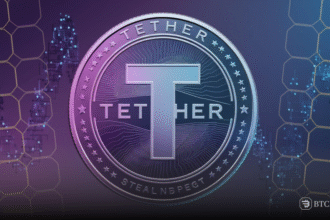As part of launching the Central Bank Digital Currency (CBDC), the Bank of England has been exploring privacy-enhanced technologies such as zero-knowledge proof to establish a safer environment for the digital pound.
In collaboration with the Digital Currency Initiative (DCI) at MIT labs, the Bank of England presented a new research report focused on how to deal with privacy issues after launching the national digital currency.
The report titled “Enhancing the Privacy of a Digital Pound” suggests utilizing the latest privacy technologies such as Zero Knowledge proof, pseudonymization and multiparty computing. These techniques require minimum sharing of data and provide users enhanced control over their sensitive information.
Besides these privacy-enhanced technologies may feasibly applied in the digital pound system and decrease the sharing of data among the central bank and intermediaries, it also provides end users greater control over their data, the report said.
ZK-proof is a cryptographic protocol currently being used by prominent crypto projects as a privacy tool and scaling solution. Ethereum (ETH), Polygon (POL), and Zcash (ZEC) are among the projects that use these techniques. It enables one party to tell the second one that they know something, but without revealing the actual information.
Zero Knowledge proof vs regulatory compliance
While commenting on the proposed suggestions of the report, The Bank of England noted in a statement,
This presents opportunities for a digital pound to be at least as private as current forms of digital money and potentially even more private, although as with any technology, there are limitations to what emerging types of PETs can achieve.
In response to the public feedback driven by the 2023 consultation, the HM Treasury and British Central Bank assured that protecting users’ privacy would be the core aspect, and neither the central bank nor the government watchdogs will have access to public data.
Though the Central Bank of England acknowledged the potential of privacy-enhanced techniques via this research, it also brings new challenges with it while balancing privacy with regulatory compliance. The report highlighted that the government’s watchdogs requiring disclosure of data and users’ demand for privacy may arouse more tensions and underscore the need for further research.
Related: MicroStrategy expands its Bitcoin holdings to 423,650 BTC







